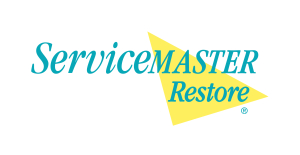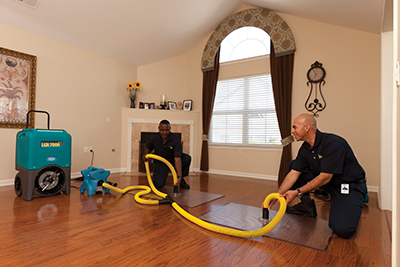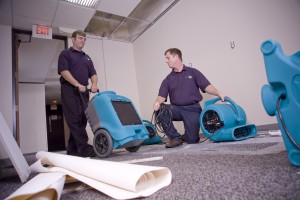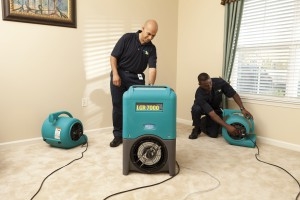ServiceMaster Water Damage Restoration Chicago

Thank you for choosing ServiceMaster Restoration by RCS to provide emergency restoration and cleanup services for your water damage. We understand that experiencing water damage restoration can be difficult, but rest assured you have selected the right people to do the job and provide the cleanup. This is most likely your first water loss. However, for ServiceMaster Water Damage Restoration Chicago, this is a process we have learned to tackle and manage in the most professional and effective way.
Years of experience in cleanup and restoring homes and businesses back to normal, and helping families and individuals just like you make us Chicago’s best choice for emergency water damage restoration and cleanup services.
Water damage restoration and cleanup is a sensitive service. That’s why ServiceMaster Water Damage Restoration Chicago is on call 24 hours a day, 7 days a week, 365 days a year. Our quick response reduces your suffering and saves money. We use advanced products, procedures, and state of the art equipment to assure the highest level of cleaning performance and protection for property and furnishings.
 Special Services:
Special Services:
Whatever the disaster, we’re ready with answers. Some of the special damage recovery services we offer include:
- Water damage restoration
- Disaster Cleanup
- Mold remediation
- Sanitizing and Dis-infecting
- Structure drying
- Document drying
- Deodorizing service/odor removal
- Board-up service
- Debris removal service
- Pack-out and storage service
- Drywall replacement
- Remodeling and painting
 ServiceMaster Water Damage Restoration Chicago
ServiceMaster Water Damage Restoration Chicago
Carpet Drying
One of the biggest problems with water damage restoration is its effect on carpets and floors. ServiceMaster Water Damage Restoration Chicago understands these issues and provides fast, on-site carpet and wood floor drying.
Here’s what we considers when drying carpet:
- Age and condition of carpet
If a carpet is so old that it is a better value to replace than attempt restoration, we’ll let you know what makes the best financial sense. ServiceMaster Water Damage Restoration Chicago uses industry resources to help determine the exact value of carpet.
- Length of time carpet was exposed to water
 Most carpets can withstand water for up to three days, but immediate response to your loss is critical. In most cases ServiceMaster Restore can be at your site within two to four hours to provide the cleanup.
Most carpets can withstand water for up to three days, but immediate response to your loss is critical. In most cases ServiceMaster Restore can be at your site within two to four hours to provide the cleanup.
Type of water Types of water affect the water damage restoration process
- Clean water: Water from a clean source with no debris.
- Grey water: Water that is not necessarily clean but is not hazardous (washing machine and dishwasher overflow, for example).
- Black water: Sewage backup or runoff water. These losses are hazardous and should be handled with caution.
- Water temperature
The temperature of the water is important to consider performing a water damage restoration. For example, a hot water heater with very warm water will affect the glue used to hold carpet fibers together.
Wood Floors
Here’s what we consider when drying wood floors:
- Wood floors are very sensitive, so proper drying is critical.
- Wood naturally holds water—up to 10% depending on the type of floor.
- Wood can absorb another 5% to 10% without showing any noticeable effects. Within a few days, however, floors that cannot hold the water any longer will expand, causing cupping or crowning. Both are very difficult to restore.
Emergency response is critical for any water damage to wood floors.
For immediate water damage restoration and cleanup services, call us now!
STRUCTURAL DRYING
How long will it take my property to dry?
Drying time is determined by a combination of factors, including the location, duration and source of water, the types of building materials, the weather conditions and how quickly emergency water damage restoration services begin. Through consistent monitoring and evaluation of the drying process, we can determine when the drying is complete. Your carpet may feel dry to the touch, but padding and sub-floors may still be wet underneath. While there are no rules to determine how long your property will take to dry, we can tell you it may take between three and five days or more, depending on the conditions.
How do I know when my property is completely dry?
Proper testing with our specialized equipment is the correct way to determine if things are completely dry. Touch alone may be a false indicator.
Will turning up the heat help dry things out?
Not necessarily. We will adjust the temperature to its optimum setting for the proper drying conditions. Please do not change the setting or shut off the HVAC system; doing so may prolong the drying process.
My wood floors are wet and buckling. Will they have to be replaced?
Wood flooring must be evaluated during the drying process. We employ specialized drying systems and dehumidifiers that enable us to create an environment
where wood floors can dry more efficiently and resume their original shape. Due to the density of hardwood flooring and urethane finishes, drying may take up to three weeks or longer. If you filed a claim, your insurance adjuster will work with you to make the final decision as to whether floors will need to be refinished or replaced.
What about my wet furniture?
The extent of damage and the construction of the furniture will determine if your furniture can be restored. Your furniture must be dried before damage can be adequately assessed. Non-salvageable furniture will be documented for you, and if any items need to be discarded, a customer release form will need to be signed.
Do I need to move out of my property during this process?
If you file an insurance claim, you may receive guidance from your insurance representative. However, this is a decision you must reach on your own. Here are several things to consider. Safety is paramount. Our equipment is as childproof as possible, but we require your supervision to make sure no children play with it. Air movers and dehumidifiers will create noise and make your property drafty for a few days. It is important that the equipment remains on, so if the noise is disruptive to you, you might want to consider an alternate place to stay.
What’s that smell?

It is not unusual to smell odors during the drying process. Increased heat and humidity can also lead to increased odors that may be coming from the drying building materials, or dormant spill and accident areas. Do not confuse these normal odors with the odor of mold. As the drying process continues and humidity levels drop, you’ll notice these odors disappearing on their own. Deodorizers are often used to minimize these effects as well.
Does everything need to be moved out during water damage restoration?
Not usually. If items need to be moved out, we will let you know in advance.
My ceilings are wet. What needs to be done?
Our technicians will evaluate moisture content, determine the severity of the damage and may have to remove some of your ceiling for ventilation. Wet insulation can also be a hazard and may need to be removed.
Should I open the windows to help the drying process?
Opening your windows to assist the drying process is not always recommended. Outside weather conditions may vary, so the technician will determine when and if the outside air is appropriate.
Can I walk on the area during the drying process?
It is strongly suggested that you keep the traffic to a minimum. Wearing shoes is recommended for your safety.
CARPET AND FLOOR COVERINGS
Can my carpet be restored or will it have to be replaced?
A few reasons your carpet may not be salvageable:
- Delamination (occurs when the backing separates from the carpet fiber)
- Loss of adhesion (may be caused by prolonged exposure to water or age of the carpet)
- Permanent stains
- Carpet covers wood flooring (to salvage the wood flooring)
- Sewage contamination
Why does my specialty floor need to be removed?
Nonporous flooring can trap water and prevent it from drying properly.
Why did the technician leave wet carpet on my stairs?
Carpet on the stairs is generally not removed for safety reasons. Exposed tack strips or staples, especially on steps, is dangerous. However, there are situations where removing carpet from stairs is necessary to prevent damage to hardwood steps or in the case of sewage contamination. Removing tack strips is not advised, as this may damage the hardwood or the subfloor. Extreme caution must be used whenever the tack strip is exposed or when the carpeted stairs are damp. If carpet left on the stairs is un-salvageable, it will be removed when new carpet is installed.
How will you match my carpet pad?
A sample of your pad is brought to our office for a match. When available, an identical pad will be used. When your original pad is not available, we will provide a pad of the same quality, thickness and density. A similar pad may differ in color based upon the time it was manufactured.
What will you do with my area rugs?
Rugs are taken to our warehouse for special care. They need to be dried carefully to minimize bleeding of colors and discoloration. Your rugs will be dried, cleaned and returned.
Equipment

Why are air movers and dehumidifiers used?
When water damage has occurred, water can be absorbed into the drywall (sheetrock), baseboards, subflooring, etc. Drying these surfaces requires high-velocity air movers to accelerate the release of absorbed water into the air. Dehumidifiers are necessary for removing this excess moisture to help protect property and create conditions for efficient drying. Please do not turn off or move drying equipment without first calling ServiceMaster Restore.
Who is responsible for monitoring the drying equipment?
Our water damage mitigation specialists will place and monitor equipment to achieve optimal results in the shortest amount of time. Please make sure no one turns the equipment off or moves it. Please notify our office immediately if the power goes off or if the equipment turns off.
What will it cost to run the equipment?
Based on average electrical rates, it may cost about $1 per day per piece of drying equipment to operate. Actual costs can vary depending on current rates from your local electricity provider.
Sewage
What about sewage contamination?
Hard surfaces can be cleaned and sanitized. Affected items that cannot be sanitized require disposal. Porous materials such as drywall, ceiling tiles, insulation, particleboard, paneling, etc., that have been directly affected should be removed during the emergency service visit.
Payment
Who is responsible for paying for the service?
Ultimately you, the property owner, is responsible for payment. As the property owner, you will need to sign a form authorizing the work and payment. If this is an insurance claim, ServiceMaster Restore generally collects only the deductible amount and bills the balance to your insurance provider as a service to you. If you have a large loss, your mortgage company may be included as a payee on the payment from your insurance company, and you may need to obtain a signature from them as well. If your claim is not covered or you decide not to file a claim, you will be expected to pay in full at the time of service.
ServiceMaster Restoration by RCS
Address: 939 W. North Ave. Suite 750
Chicago, IL 60642
TEL: 312-998-7300
TEL: 773-992-9122
FAX: 888-990-2177
Email: Info@ServiceMaster-RCS.com


